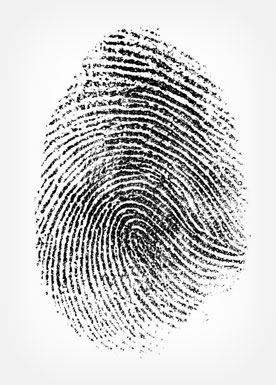Robert "Bob" Mazur: The Infiltrator
Robert Mazur, Certified Expert, Money Laundering and International Drug Trafficking, Former Federal Agent, IRS, US Customs Service, Drug Enforcement Administration
During his government career, Robert "Bob" Mazur was a Senior Special Agent with three federal agencies (the IRS — Criminal Investigation Division, the US Customs Service, and the Drug Enforcement Administration). During his 27-year career as a federal agent, he specialised as a long-term undercover agent in money laundering and drug investigations before retiring in July of 1998. He is best known for his 2-year undercover role as a money launderer in an investigation that assisted in the prosecutions of the Bank of Credit & Commerce International (BCCI), senior officers of BCCI, and high-ranking members of Colombian drug cartels. Mr. Mazur is a court certified expert in the fields of money laundering and international drug trafficking. He has attained this certification in the Federal criminal courts of both the US and Canada.Interview
Part 2B: Risk Culture
Listen to the podcast:
Have we turned a corner when it comes to risk culture and strength of legislation?
I think — and this was the closing sentence in my New York Times piece — that you will get a change in the culture when people in the boardrooms endorse this type of conduct — when they start hearing the clicking of the handcuffs in the boardroom, and people really go to jail. In the HSBC case, there is a Federal grand jury ongoing in New York that's led by the Department of Homeland Security Immigration and Customs Enforcement. It's a multiagency grand jury under their taskforce code, El Dorado.

I know the personnel; I've worked with them in years past. I think they're extraordinarily focused on trying to determine individual responsibility. There was a comment from a friend of mine, Martin Woods, who used to work with Wachovia Bank, who said, "Banks don't launder money, people do." We've got to get focused on that. We've got to recognise that what happened at Wachovia didn't happen by accident. What happened at HSBC didn't happen by accident.
For those people who knowingly took funds in that they knew came from a specified unlawful act — in this case, it's drugs — and they did anything to conceal or disguise the source of the funds, they're liable for prosecution under the Money Laundering Control Act. They're liable for a 20-year felony and a $500,000 fine, or two times the value of what you've laundered. So if you've laundered billions, that's a pretty big fine.
When that type of enforcement activity — and I think that's really where we're lacking right now — we have regulators, highly-skilled, very motivated governments trying to figure out how to set up regulations. But the one thing we don't have is, at least in the United States, maybe it exists in other countries, a Federal law enforcement agency, a criminal prosecuting agency that is clearly identified and understood by regulators and prosecutors to be the go-to people to have involved in the criminal prosecution of bankers who are laundering money. There's no proactive involvement. It's always reactive.
I think that [it] would make a huge difference if we had a proactive involvement, and it could be a multiagency taskforce.
If you look at the UBS case, when Birkenfeld, the whistle-blower, wound up being charged criminally, the reason that UBS wound up getting all that attention is not because of a regulator who came in, but because of the fact that Birkenfeld got caught on the border and was questioned and folded, and began to provide information under a granted immunity, and then lied under the granted immunity and didn't turn certain information over. So he went to jail. No one else at UBS went to jail, but that whole thing came about due to an act of criminal enforcement role.
In that instance, UBS is involved in Income Tax evasion. Clearly, the IRS was the agency for them to go to. But when it's drug money, when it's pilfering of treasuries when it's dealing with prohibited nations, who is the go-to Federal agency? Why aren't they involved early on, proactively, to try to identify who's there? If it's going to continue to be this reactive thing that comes about through hard work by regulators, and then the regulators make a referral to the lawyers for the regulation entity, and then they make a referral to the Department of Justice, three, four years are going to go by every single time and we're going to be stuck with the same dilemma we now have. Who did it? It was four years ago.
I think that [it] would make a huge difference if we had a proactive involvement, and it could be a multiagency taskforce. In the United States, in years past, when Italian organised crime was a major issue, the Government came up with this concept of Strike Force. Strike Force was a separate entity that had agents from each agency, and they worked for the Strike Force. Their goal was to go after mobsters, no matter how they were going to prosecute them. We need that same kind of Strike Force that's going to go after dirty bankers and dirty businessmen who handle cross-border transactions, because those are the ones that are most often involved, identify and proactively get involved. If we want to make a difference, to me, that's the way we wind up making a difference.
Find out more about LexisNexis Risk & Compliance and how it can help you address the threat of money laundering and mitigate your risks for your organisation.
